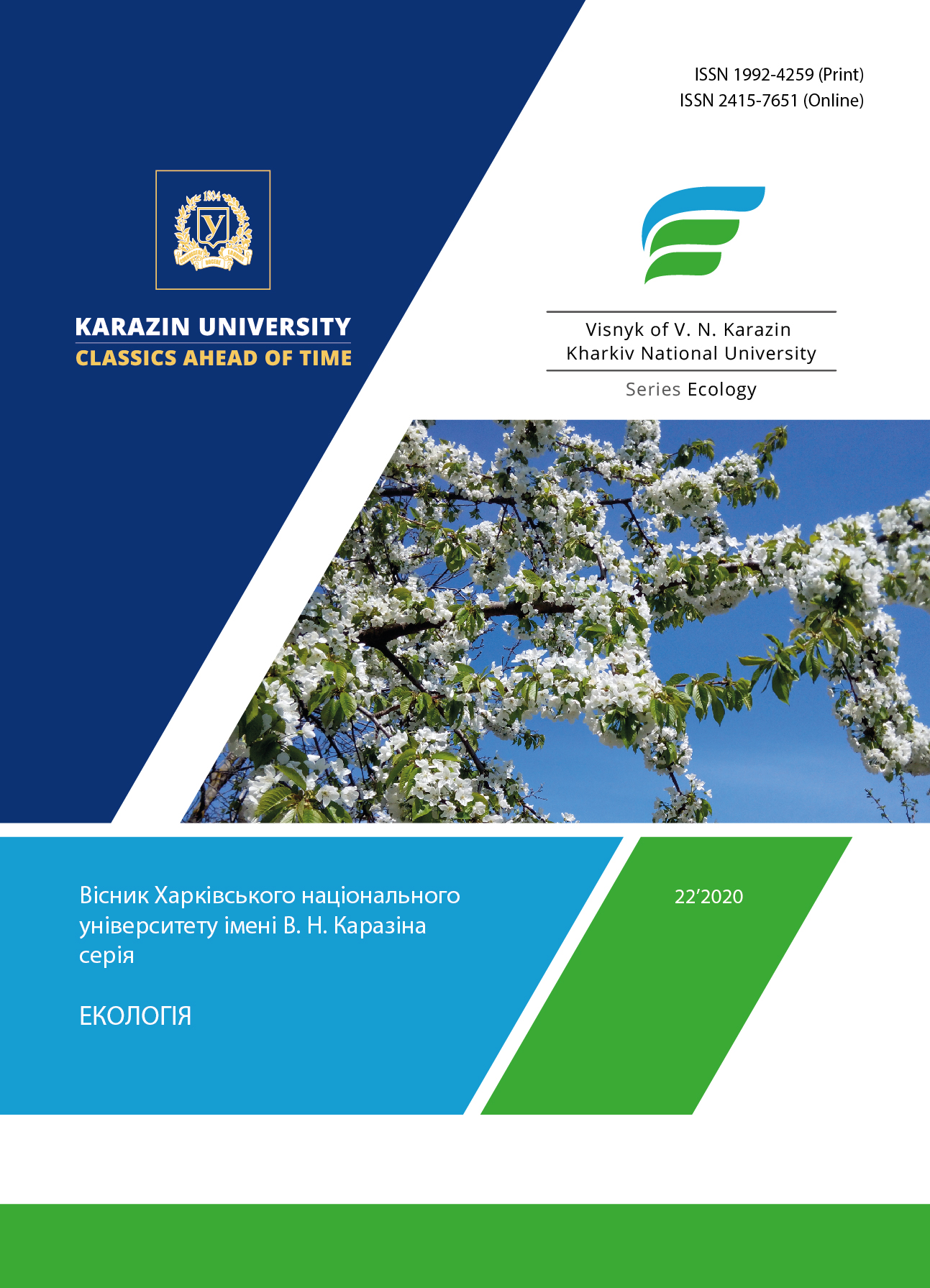Socio-Natural Approach to the Environmental Education and Training
Abstract
Purpose. To study genesis and introduction of socio-natural approach to environmental education and training. Identification of the modern trends and humanization of ecological knowledge, taking into account the features of socio-natural systems in environmental education.
Results. The author emphasizes that the realities of personal well-being have socio-natural origin which is divided into two autonomous units: nature sciences and socio-humanitarity. Comprehension of specificity of society-and-nature integrity has a long history in the Ukrainian science. The author has analysed creative features of this idea in works published by I. Franko, S. Podolyns’ky, V. Vernadsky. Special attention is paid to G. Bachynsky’s socioecological researches who substantiated the necessity of separate science about harmony of society-nature relations– socio-environmental sciences. He gave reasons for the principles of its formation, laws, conceptual system. The appearance of interdisciplinary tendency has caused the need in substantiation of socio-natural approach to environmental education and training.
Conclusion. The socio-natural approach is satisfied the concept of sustainable development and social practice of humanity.
Downloads
References
Franco, I. (1986). Collection of works in fifty volumes. Kyiv: Scientific Thought, 45, 79 (in Ukranian).
Dolishny, M. I. & Zludko, S. M. (1998). Lviv Ecological and Economic Scientific School, its outlook principles, creative achievements and modern problems. Regional economy, (4), 95 – 107 (in Ukranian).
Vernadsky, V. I. (1989). Biosphere and noosphere. Moscow: Science (in Russian).
Bachinsky, G. O. (1983). Social ecology is the science of the interaction of human society with nature. Bulletin of the USSR Academy of Sciences, (10), 68 -74 (in Ukranian).
Nazaruk, M. M. (2013). Social ecology: interaction between society and nature. Lviv: Ivan Franko National University (in Ukranian).
Podolinsky, S. A. (1880). Human labor and its relation to the distribution of energy. Word, April – May, 211 (in Russian).
Semeniuk, E. P. (2002). Philosophical foundations of sustainable development. Lviv: Playbill (in Ukranian).
The phenomenon of socio-natural systems. Outline - methodological essays. (2009). Kyiv: PARAPAN (in Ukranian).
Shabliy, O. I. (2001). Social geography: theory, history, Ukrainian studies. Lviv: Lviv National University Ivan Franko (in Ukranian).
Golubets, M. A. (2005). Introduction to geosociosystemology. Lviv: Polly (in Ukranian).
Kiselev, M. M., Gardashchuk, T. V., Zarubitsky, K. E. (2006). Ecological dimensions of globalization: monograph. Kyiv: PARAPAN (in Ukranian).
Mayer-Abih, K. (2004). Rebellion for Nature. From the environment to the community. Kyiv: Libra, 96 (in Ukranian).
Melnyk, V. P. (2010). Philosophy. Science. Technique: Methodological - worldview analysis monograph. Lviv: Ivan Franko Publishing Center in Ukranian).
Petlin, V. M. (2016). The theory of natural territorial systems: in 4 volumes. Lviv: Ivan Franko National University (in Ukranian).
Semeniuk, E. P., Olyanyshen, T. V., Senkivsky, V. M., Melnikov, A. V. & Kotlyarevsky, Y. V. (2012). Ecologization of society: social role and modeling. Lviv: Ukr. Acad. printing (in Ukranian).
Harari, Yu. N. (2016). The person is smart. The history of mankind from the past to the future. Translate with English. J. Lebedenko. Kharkiv: Family Leisure Club (in Ukranian).
Authors who publish with this journal agree to the following terms:
- Authors retain copyright and grant the journal right of first publication of this work under the terms of a license Creative Commons Attribution License 4.0 International (CC BY 4.0).
- Authors are able to enter into separate, additional contractual arrangements for the non-exclusive distribution of the journal's published version of the work (e.g., post it to an institutional repository or publish it in a book), with an acknowledgement of its initial publication in this journal.
- Authors are permitted and encouraged to post their work online (e.g., in institutional repositories or on their website) prior to and during the submission process, as it can lead to productive exchanges, as well as earlier and greater citation of published work.





